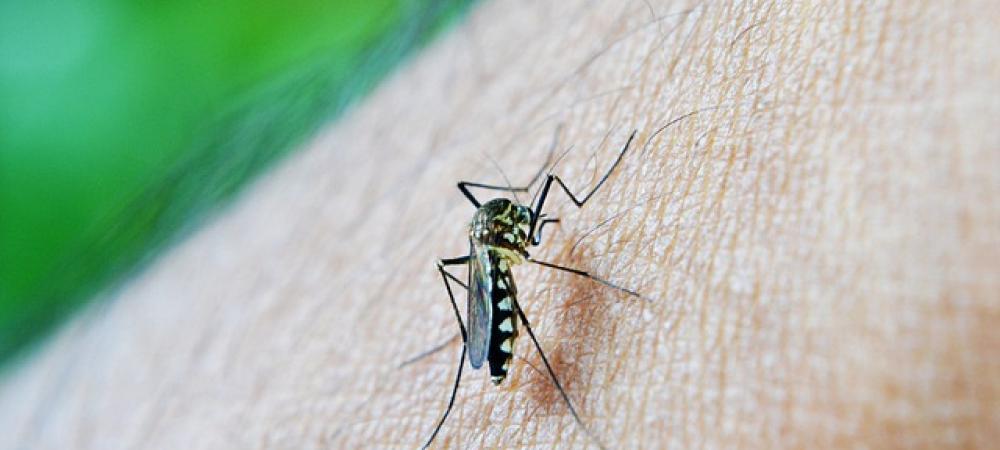How Overwatering Your Lawn Creates the Perfect Mosquito Breeding Ground

Mosquitoes are one of the most frustrating backyard pests, especially once warmer weather hits. While most people focus on DIY tricks to keep them away, there’s one surprising factor that could be making your mosquito problem worse—your lawn watering habits.
Overwatering your grass doesn’t just waste water or damage turf. It can actually turn your yard into a breeding ground for mosquitoes by creating standing water and keeping soil excessively damp. In this blog, we’ll break down how overwatering contributes to mosquito infestations and what you can do to fix it.
Why Mosquitoes Love Standing Water
The connection between mosquitoes and water is simple: they need stagnant water to reproduce. Just a small amount—like what could collect in a bottle cap—is enough for a mosquito to lay hundreds of eggs.
Common breeding sites around the yard include:
- Clogged gutters.
- Bird baths.
- Flower pots, buckets, or kids’ toys.
- Overwatered patches of lawn where water collects.
Once eggs hatch, mosquitoes can complete their life cycle in just 7–10 days under the right conditions. That means even minor puddles or soggy areas can support a fast-growing mosquito population.
How Overwatering Creates Mosquito Havens
When your lawn gets more water than it can absorb or drain, moisture lingers longer than it should—and that’s a problem.
Overwatering can cause:
- Water pooling on the lawn’s surface or collecting in low spots.
- Saturated soil that stays wet for days, giving mosquito larvae time to develop.
- Tall, damp grass that holds humidity and gives adult mosquitoes shady, cool places to rest.
- Runoff that collects in hard-to-see depressions, especially near the edges of your property.
All of these conditions make your yard more inviting to mosquitoes—and harder to enjoy.
Signs You're Overwatering Your Lawn
Wondering if you’re watering too much? Your lawn—and your feet—will usually tell you.
Here are the most common warning signs:
- The ground feels squishy or soggy underfoot.
- Water runs off quickly, even after just a short watering.
- Grass begins to yellow or wilt, even though it’s getting water.
- Mushrooms or fungal patches start appearing.
If you’re seeing one or more of these issues, it’s time to take a closer look at your watering routine.
How to Water Your Lawn the Right Way
The goal of watering is to hydrate the roots—not flood the soil. A few adjustments can make your lawn healthier and less attractive to mosquitoes.
Best practices include:
- Water deeply but infrequently—2 to 3 times per week at most for most lawns.
- Water in the early morning, so moisture has time to dry before nightfall.
- Skip watering if there’s been recent rainfall or if the weather is cool and cloudy.
- Tailor your schedule to your specific grass type, especially warm-season grasses like Bermuda or Zoysia, which prefer drier conditions between watering.
These small changes can dramatically improve lawn health while also cutting down on mosquito activity.
Other Tips to Keep Mosquitoes Away From Your Lawn
In addition to proper watering, a few yard maintenance habits can go a long way in reducing mosquito populations.
Helpful prevention tips:
- Eliminate standing water in other areas like gutters, flower pots, bird baths, and kids’ toys.
- Keep grass trimmed and shrubs pruned to reduce shady mosquito hiding spots.
- Use mosquito-repelling plants like citronella, lavender, or rosemary near patios and entryways.
- Install or improve drainage in low spots where water frequently collects.
Combining these tactics with smart watering habits can make your lawn much less appealing to mosquitoes.
When to Call a Lawn & Pest Professional
Sometimes, even with the right strategy, mosquitoes persist. That’s when calling in a professional team can make a big difference.
- If mosquitoes are still a constant issue despite your efforts, you may need targeted treatments.
- Unlimited Lawn Care™ offers integrated solutions for mosquito control, addressing the root causes of both turf stress and insect activity.
- A coordinated program ensures your grass stays healthy and your yard stays mosquito-free—without the trial and error.
Conclusion
Overwatering may seem harmless, but it can actually do more harm than good—weakening your lawn and creating the perfect conditions for mosquitoes to multiply. Damp soil, puddles, and thick grass can quickly turn your yard into a place mosquitoes love.
The good news is that with the right watering routine and a few smart maintenance habits, you can take back control. Lawn care and mosquito control go hand in hand, and getting both right can transform your outdoor space.
Ready to improve your lawn and keep mosquitoes away? Schedule a lawn health assessment and mosquito barrier treatment with Unlimited Lawn Care™ today.
